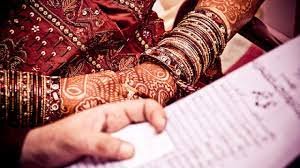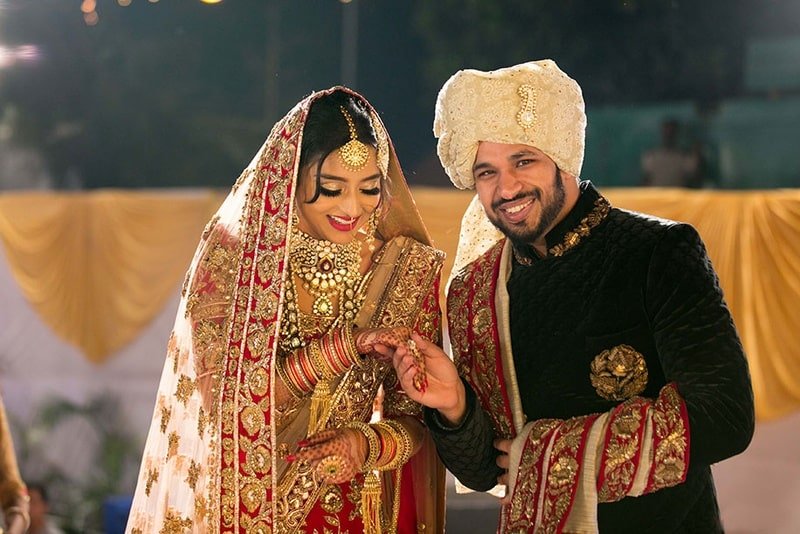Court Marriage
Court marriage, also known as civil marriage, is a means of formalizing a marriage in the presence of a legal authority, often a judge or magistrate, rather than through a religious ceremony. It offers couples a straightforward and legally recognized method of getting married. This comprehensive exploration of court marriage will explore its various aspects, including its significance, procedure, benefits, and potential challenges.
Understanding Court Marriage
Court marriage represents a legally binding union between two individuals governed and recognized by the laws of the land. Unlike traditional religious weddings, court marriages occur in a secular setting and do not involve religious rituals or ceremonies. This makes it an appealing option for couples from diverse cultural and religious backgrounds, as it sidesteps potential conflicts arising from differing religious traditions and beliefs.

A. Legal Framework
The legal framework for court marriage varies from country to country, with the Special Marriage Act or similar legislation often regulating court marriages. These laws specify eligibility criteria, the procedure, and the conditions for a valid court marriage.
B. Eligibility Criteria
Age: Generally, both individuals must meet the legal marriageable age, which varies by country. Minors may require parental consent or court approval.
Mental Capacity: Both parties must possess the mental capacity to comprehend the implications of marriage and provide informed consent.
Marital Status: Individuals seeking a court marriage should be unmarried or legally divorced, as most legal systems do not recognize polygamous marriages.
The Court Marriage Process
A. Application
The court marriage process typically begins with an application to the appropriate authority. The application form includes personal details of the individuals, their intent to marry, and a declaration of their free will.B. Notice
In many jurisdictions, a notice of the intended marriage is posted at the marriage registrar’s office or published in a local newspaper. This notice period allows objections to be raised if there are valid reasons to prevent the marriage, such as an existing marriage.C. Verification
Following the notice period, the registrar typically conducts an inquiry to ensure that the individuals meet the eligibility criteria and that there are no legal obstacles to the marriage.D. Marriage Ceremony
Once all requirements are met, the court marriage ceremony is scheduled. It is a simple and solemn affair, often held in the registrar’s office or a designated courthouse. The judge or magistrate officiates the ceremony, and the couple exchanges vows and signs the marriage register.E. Registration
The marriage becomes legally binding upon registration with the appropriate authorities. A marriage certificate is issued as proof of the marriage, essential for various legal and administrative purposes.Advantages of Court Marriage
A. Legal Recognition
One of the primary benefits of court marriage is that it grants legal recognition to the union. This recognition encompasses various legal advantages and protections, including inheritance rights, spousal support, and access to government-sponsored healthcare and social security benefits.B. Simplified Process
Court marriage is often more straightforward and less time-consuming than traditional religious ceremonies. The absence of elaborate rituals and customs can make the process more accessible and less stressful for couples.C. Interfaith and Inter-caste Marriages
Court marriage is a preferred choice for couples from different religious or caste backgrounds, enabling them to marry without religious or cultural constraints.D. Privacy and Secrecy
Some couples appreciate the privacy and confidentiality of a court marriage, allowing them to maintain discretion without needing a grand public celebration.

Potential Challenges
While court marriage offers several advantages, it may also pose challenges for some couples.A. Social Stigma
In some societies, court marriages may carry a social stigma, perceived as less traditional or romantic than religious weddings. Couples might face judgment or criticism from family and peers.B. Family Opposition
Family members may object to a court marriage, particularly if it contradicts their cultural or religious beliefs. This can lead to strained relationships and family conflicts.C. Legal Complexities
Despite its simplicity, court marriage can involve legal complexities, especially concerning documentation, eligibility, and the notice period. Couples should ensure they meet all legal requirements to avoid potential issues.D. Limited Religious Significance
For individuals who place great importance on religious ceremonies, court marriage may lack the spiritual and emotional significance associated with a religious wedding.Global Perspectives on Court Marriage
Court marriage is practiced worldwide, with variations in laws and procedures. Examining different global perspectives provides a broader understanding of its significance and implementation.A. United States
In the United States, court marriage is commonly referred to as a civil ceremony, where couples can choose to have a judge, magistrate, or city clerk officiate. It is particularly popular for couples who prefer a non-religious ceremony.B. India
India’s court marriages are governed by the Special Marriage Act of 1954, allowing individuals from different backgrounds to marry without religious conversion or ceremonies, making them increasingly popular.C. United Kingdom
In the United Kingdom, civil weddings have been legally recognized since the Marriage Act of 1836, offering a non-religious alternative to traditional church weddings.D. South Africa
South Africa allows court marriages performed by government-appointed marriage officers, offering a secular option for couples.E. Middle East
In some Middle Eastern countries, court marriages are not recognized, and religious ceremonies remain the only legal means of marriage. However, some couples opt for court marriages in other countries where they are legal, especially if they come from different religious backgrounds.F. Pakistan
Court marriages in Pakistan are celebrated for their legal recognition and secular appeal, allowing couples to marry without religious constraints. Supporters see them as upholding freedom of choice and legal safeguards, particularly for women’s rights. However, opponents argue that court marriages may diminish traditional values and provoke social stigma or familial opposition. Despite these differences, court marriages continue to be a popular choice for couples seeking a legally recognized union, free from religious or cultural constraints.Legal Intricacies of Court Marriage
The legal intricacies of court marriage may vary among jurisdictions but include common elements essential to understanding.A. Eligibility Requirements
Eligibility criteria typically encompass age restrictions, mental capacity, and marital status. Couples must meet these requirements to proceed with a court marriage.B. Notice Period
In many countries, a mandatory notice period is in place during which the couple’s intention to marry is made public. This allows objections to be raised, ensuring there are no legal impediments.C. Documentation
Various documents, such as proof of identity, residence, and marital status, are typically required and must be submitted during the application process.D. Witnesses
Most jurisdictions mandate the presence of witnesses during the court marriage ceremony to attest that the marriage has occurred.E. Registration
After the ceremony, the marriage must be registered with the appropriate government authority. A marriage certificate is issued as legal proof, crucial for various administrative purposes.Societal Relevance of Court Marriage
Court marriage holds significant societal relevance in today’s diverse and evolving world, extending beyond legal aspects.A. Inclusivity
One of the most significant advantages of court marriage is its inclusivity, allowing couples from different backgrounds, religions, and cultures to marry without religious constraints or conflicts.B. Gender Equality
Court marriage promotes gender equality by emphasizing both spouses’ equal legal rights and responsibilities, eliminating gender-specific roles and rituals often associated with religious weddings.C. Simplification of the Process
The simplicity of court marriage appeals to many couples who prefer a straightforward and stress-free process, eliminating the need for elaborate ceremonies and extensive preparations.D. Privacy and Personalization
Court marriage offers couples the freedom to personalize their wedding vows and ceremonies while providing the intimacy of a private setting, typically in a courthouse or registry office.Contemporary Challenges and Debates
Despite its numerous benefits, court marriage has its challenges and ongoing debates.A. Social Stigma
In some societies, court marriages still carry a social stigma, perceived as less traditional or romantic than religious weddings. Couples may face criticism or pressure to conform to cultural norms.B. Family Dynamics
Family opposition to court marriages can create tensions within families, especially if traditional religious ceremonies are strongly preferred, and court marriages are not accepted.C. Legal Complexities
Navigating the legal requirements of court marriage can be challenging, especially when couples come from different countries or have complicated legal situations.D. Cultural Sensitivity
In multicultural societies, striking a balance between cultural traditions and the desire for a court marriage can be sensitive. Couples may need to navigate these complexities with care and sensitivity.Significance of Court Marriage in Modern Society
Court marriage has gained significant significance in modern society due to several compelling reasons.A. Legal Recognition and Protection
One of the primary advantages of court marriage is its legal recognition, granting access to a range of legal protections and benefits and safeguarding couples’ rights and responsibilities under the law.B. Inclusivity
In an increasingly diverse and multicultural world, court marriage stands as an inclusive option for couples, aligning with the values of many modern couples who wish to honor their diverse identities.C. Gender Equality
Court marriage promotes gender equality by emphasizing equal legal rights and responsibilities for spouses, rejecting traditional gender-specific roles and rituals often associated with religious weddings.D. Privacy and Personalization
Modern couples often prioritize privacy and personalization in their wedding ceremonies. Court marriage provides the freedom to customize vows and ceremonies while offering the intimacy of a private setting.Technology’s Role in Facilitating Court Marriages
The digital age has transformed how court marriages are conducted, making the process even more accessible and efficient.A. Online Application and Documentation
Many jurisdictions now offer online platforms for couples to submit their marriage applications and required documents, streamlining the application process and reducing in-person visits.B. Virtual Ceremonies
In response to the COVID-19 pandemic, some regions have introduced virtual court marriage ceremonies, allowing couples to participate from home while meeting all legal requirements.C. Electronic Marriage Certificates
Digital marriage certificates are becoming increasingly common, securely stored, and easily accessible, simplifying administrative tasks for couples.